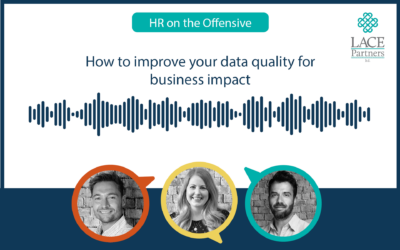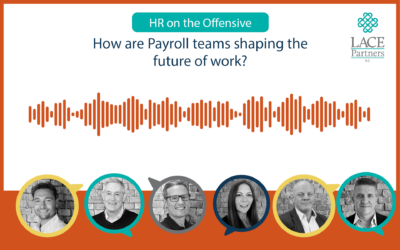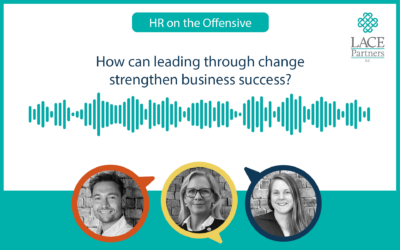Joined by Penny Lang (previously from Cornwall Care), this week’s blog summarises a discussion on one of a recent HR on the Offensive Podcast. Penny ran a change programme implementing Ceridian’s HCM technology Dayforce in 2020 so we spoke to her to understand how you can effectively manage change in an environment where front line workers are under so much pressure.
What are your biggest takeaways from the past year?
Don’t be frightened of people. Over the last six to 12 months, it feels like as a society we have learned to fear other people and the associated consequences of being with them. However, what I’ve found is that people can be your salvation; they can make you smile and can surprise you by adapting to things you never thought they would be capable of. You need to trust and embrace people as what emerges is greater productivity and a collective sense of achievement.
What core lessons have you learned during the global pandemic, and what has inspired you during this time?
Fear controls so much. It controls how we adapt to change, how we work, process and react. In the run up to Covid-19 the emphasis was around risk assessment and risk management, with people constantly asking themselves ‘can we do this?’. There was a dramatic shift from ‘are we going to trip up?’ to having no choice and having to dive straight in. HR teams were almost forced to overcome their instinct to risk assess and instead move into a bolder ‘possibilities’ mindset.
It was inspiring to see how robust people are and their ability to accept and adapt to change. One of the few positives from this period is that it has taught us that we can move forwards and embrace that change.
How have you managed to balance the need to progress a change programme in an environment where the implementation is not going to be the staff’s number one priority?
Remember that you don’t make decisions for people, you ask them to be a part of the decision-making process, which allows employees within your business to feel like they own the change along with you.
Engage the team you are working with all the way along the change journey. Many projects will only engage teams at the beginning or at the halfway stage, then tell people within the business what they are expected to do. At Cornwall Care, we understood that the team had other pressures and welcomed them to talk about the change, talk about their problems and talk about what working life could look like in the future. Change wasn’t something happening to them it was happening with them.
What happens now as we move from a virtual to a hybrid world, with more people returning to physical interactions?
I think many organisations will have a lot to address as we have asked people to be resilient and strong in the roughest of environments over the last year. Businesses have had to balance the challenges of putting employees on furlough and keeping them engaged, alongside supporting those remaining in the business; asking them to do a really great job and continue to work hard.
As a result, there has been trauma bonding as people connect through negative experiences and there has also been some separation between groups. For example, some may experience ‘furlough fear’ when returning to work (which may have been a negative or positive experience depending on their circumstances). We also have the non-discussed ‘furlough envy’; some people have had to work greater hours during Covid than ever before and are envious of colleagues who have had a break. These employees have experienced very different journeys and are now being asked to reunite with little consideration for their individual paths.
How do you manage the return-to-work process when every person is different?
There’s a question here around maintaining transparency. None of us have ever had to manage anything like this before, so there isn’t a rule book or examples to look at – it’s going to be a learning experience for everyone. I think there are three considerations here:
- Stop viewing your team as ‘employees’ and view them as ‘people’. After such a turbulent year, everyone will need some time to reflect, digest and adapt to new circumstances.
- Lead from the front, you are human too! You can be honest with them about how you feel and share your own reactions. Do so whilst continually providing direction and guidance on how to share in difficult circumstances.
- Understand what demographics are in your business. Some groups face a higher risk of poor mental health, and you need to address this to fully support your team.
If you are running a change programme and have questions on what you’ve read, reach out! Change is one of our passions, get in touch and one of our experts will be in touch.
Check out these additional resources:
The shifting change and adoption mindset to scale people analytics
AI and change management: A synergy for success
Some thoughts on People Change, the LACE-way







